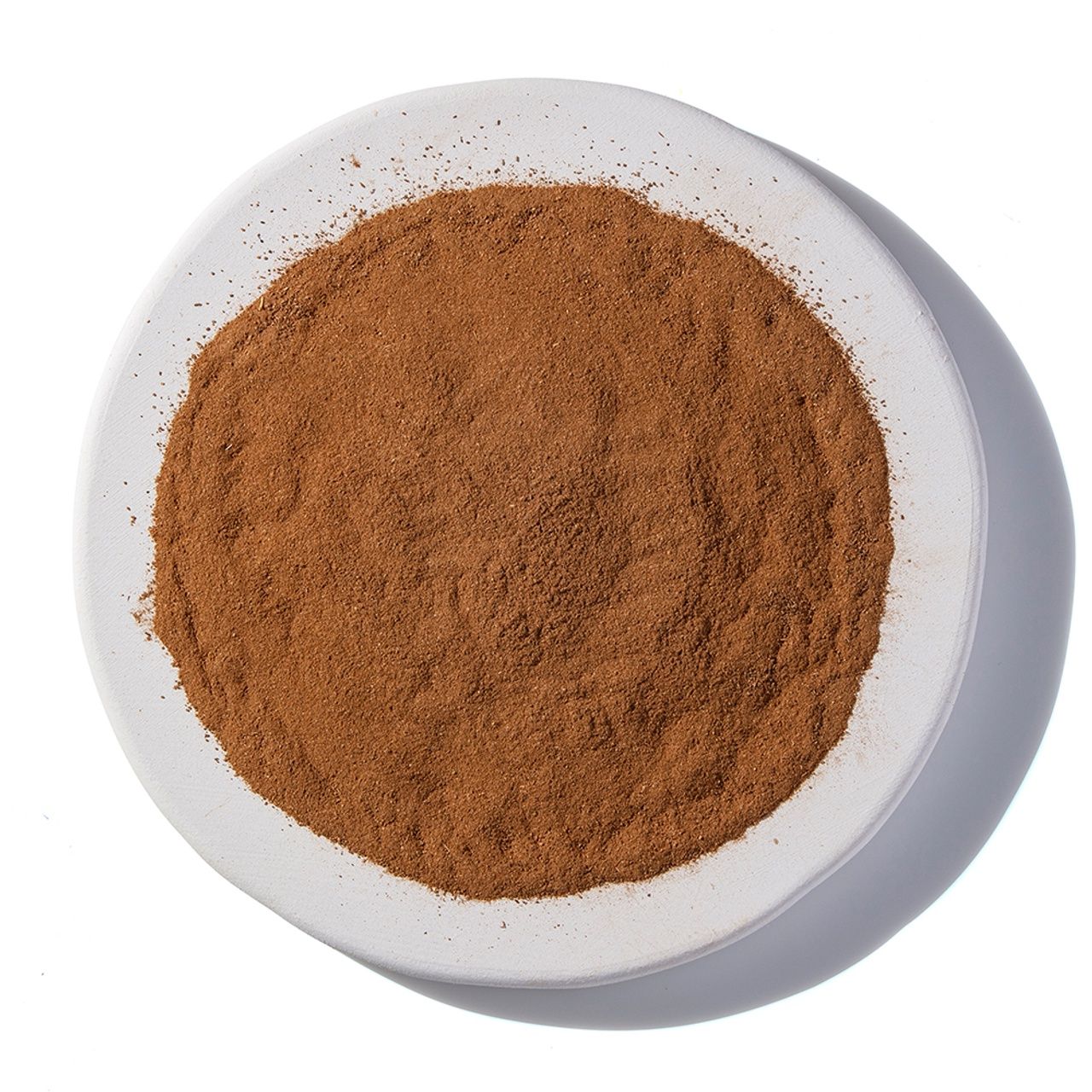CINNAMON POWDER CEYLON ORGANIC
Ceylon, also known as "true cinnamon," is a rarer form of cinnamon that's prized as a baking spice. Made from the inner bark of the Cinnamomum verum tree, Ceylon has a lighter flavor than the more widely known Korintje cinnamon.
Cinnamomum verum, or Ceylon Cinnamon (Sri Lanka)
Ceylon is native to Sri Lanka, the Malabar Coast of India, and Myanmar, and is also cultivated in South America and the West Indies. It has a light tan-brown color and a sweeter, milder flavor than Cassia cinnamon.
With its delicate flavor and sweet aroma, Ceylon adds the perfect touch to desserts like cookies, muffins, and cinnamon rolls. Brew it into tea for a hint of soothing sweetness.
The biggest advantage of Ceylon Cinnamon, or "true" cinnamon, is its ultra-low Coumarin levels. Coumarin in high doses may not be good for the liver, so for people who take Cinnamon on a daily basis for health reasons or as a supplement, Ceylon Cinnamon is the preferred choice. Ceylon Cinnamon is also perfect for desserts because it is subtle, smells very mild and is slightly sweeter in taste, but adds a very complex flavor. The aroma it gives off is a very sophisticated and fragrant smell. Because Ceylon Cinnamon tends to be mild and sweet, it lends itself to creating sophisticated layers of flavors that is not possible with the other Cinnamon varieties.
Common Names: Cassia
Health Benefits
The vitamins, minerals, and antioxidants in Ceylon cinnamon provide significant health benefits. For example, cinnamon is full of beta-carotene, which is part of the reason for its rich brown color. The carotene family of pigments acts as important provitamins since they can be converted into vitamin A. This vitamin is an important part of keeping your eyes healthy.
Other health benefits of Ceylon cinnamon include:
Ceylon cinnamon's active ingredient, cinnamaldehyde, may have anti-inflammatory properties. Cinnamaldehyde has been shown to reduce the inflammatory response in the body, leading to fewer negative symptoms. Inflammation is linked to chronic conditions like heart disease, diabetes, and arthritis. Ceylon cinnamon may be able to reduce symptoms of these conditions.
Early studies done with cinnamon have shown that it can help reduce your cholesterol levels. "Bad" LDL cholesterol is connected to problems like heart disease, as are high cholesterol levels overall. Cinnamon appears to help lower LDL and overall cholesterol levels without affecting "good" HDL cholesterol significantly.
Finally, cinnamon also seems to have benefits for people with insulin resistance or diabetes. Studies show that regularly consuming cinnamon can help your body's natural response to insulin. This can help your body moderate its blood sugar levels more effectively and reduce your risk of hypo- or hyperglycemia incidents.

